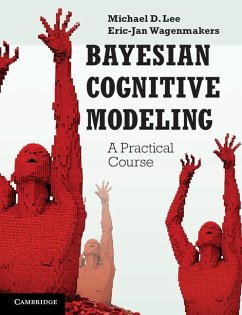
The Process of Psychotherapy
Causation and Chance
Versandkostenfrei!
Versandfertig in 6-10 Tagen
76,99 €
inkl. MwSt.
Weitere Ausgaben:

PAYBACK Punkte
38 °P sammeln!
This book describes an encompassing modeling approach to psychotherapy, created with the most recent research in the field. Therapeutic interventions are staged within a therapist-client relationship ('alliance'), and become effective by the interplay of deterministic ('causation') and stochastic ('chance') forces. The authors use a Fokker-Planck approach complemented by a structural-mathematical framework from complexity theory. Chapters present statistical tools, which can be applied to analyze the differing time series that depict therapeutic processes. Chapters include examples of how to u...
This book describes an encompassing modeling approach to psychotherapy, created with the most recent research in the field. Therapeutic interventions are staged within a therapist-client relationship ('alliance'), and become effective by the interplay of deterministic ('causation') and stochastic ('chance') forces. The authors use a Fokker-Planck approach complemented by a structural-mathematical framework from complexity theory.
Chapters present statistical tools, which can be applied to analyze the differing time series that depict therapeutic processes. Chapters include examples of how to use these tools within research. The approach adopted in the book - contemporary psychotherapy terminology combined with a systems-theoretical model and algorithms for quantitative psychotherapy research - has the potential to become the new benchmark in psychotherapy.
The Process of Psychotherapy is an informative and sophisticated resource for all levels of students, from undergraduate through post-doctoral studies, in the fields of psychology, cognitive psychology, and psychotherapy.
Chapters present statistical tools, which can be applied to analyze the differing time series that depict therapeutic processes. Chapters include examples of how to use these tools within research. The approach adopted in the book - contemporary psychotherapy terminology combined with a systems-theoretical model and algorithms for quantitative psychotherapy research - has the potential to become the new benchmark in psychotherapy.
The Process of Psychotherapy is an informative and sophisticated resource for all levels of students, from undergraduate through post-doctoral studies, in the fields of psychology, cognitive psychology, and psychotherapy.














